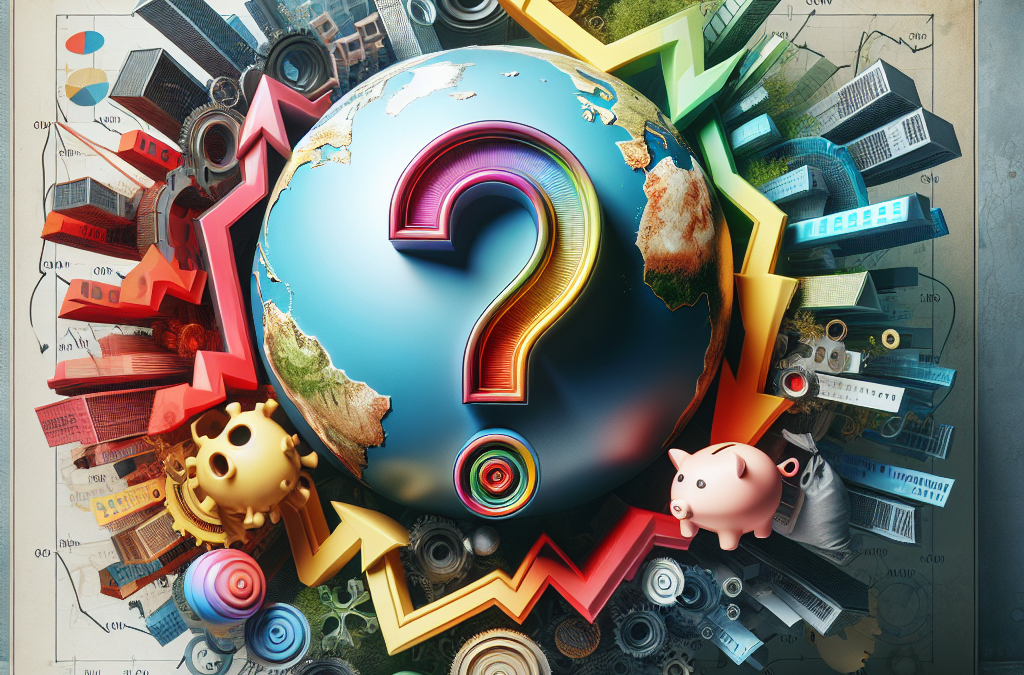1. Financial Readiness
Budgeting Wisely
One of the first things I learned about preparing for an economic downturn is the importance of budgeting. I started by tracking all my expenses for a month. This gave me a clear picture of where my money was going. From there, I was able to adjust my spending habits and prioritize necessities. Living within my means became easier, and I even discovered areas where I could cut back.
After budgeting, I also created a separate emergency fund. It’s a game-changer! Having some savings set aside not only provides peace of mind but also acts as a cushion if income falters or unexpected expenses arise. By setting up automatic transfers to my savings account each month, I built that fund without even noticing the difference in my spending.
Finally, I always revisit and tweak my budget regularly. Economic conditions are ever-changing, so I make it a habit to reassess my finances quarterly. It keeps me acutely aware of any financial pressures that might be on the horizon, allowing me to adapt my strategy as needed.
2. Resource Management
Stocking Up on Essentials
When times are tough, having the right resources can mean the world. I’ve learned that stocking up on essentials like food, hygiene products, and common medications helps in more ways than one. It’s not only useful for unforeseen circumstances but also can save money when buying in bulk. I often check for sales and buy non-perishable goods ahead of time.
Another area of resource management is being savvy about utilizing what I already have. Instead of rushing out to buy the latest gadgets or products, I take time to assess and repurpose. For example, I’ve turned old furniture into useful storage solutions, which helps me avoid spending while maximizing my space. Innovation can stretch resources further than you’d think!
Moreover, I connect with community resources and trade groups, where exchanging goods can be beneficial. This practice has helped me find everything from clothes to tools at little or no cost. Building a network not only enriches my life but also enhances my preparedness for challenging times.
Thank you for reading this post, don't forget to subscribe NOW for FREE!
3. Skills Development
Learning New Skills
Investing time in developing new skills has become a crucial part of my preparation strategy. I realized that knowing how to cook from scratch or repair basic home items could save a ton of cash. So, I started watching DIY videos online and even took a few community classes. It was fun, and I felt empowered along the way!
In addition to practical skills, I also focus on financial literacy. Understanding personal finance terms and investment strategies has opened new doors for me. By joining workshops or reading books on the subject, I feel much more in control of my financial future. Plus, having this knowledge helps in making informed decisions during economic uncertainties.
Another area I’ve delved into is self-sufficiency. I’ve taken up gardening and learned how to grow some of my own food. It not only provides fresh produce but also reduces grocery bills significantly. I enjoy sharing the yield with friends and family, which makes the experience even more rewarding.
4. Building Community Connections
Networking with Neighbors
One of the most gratifying aspects of preparedness planning has been building a strong network with my neighbors. During tough economic times, having supportive people nearby can be a lifesaver. I often engage in neighborhood meetings or local gatherings, which helps form connections and share resources.
Pooling resources has worked wonders for me and those around me. Whether it’s organizing community meals, where everyone contributes, or starting a supply swap among families, it brings us together and lessens the impact of any economic strain. Together, we’re able to create a safety net that feels more secure than if we were alone.
Also, community volunteering has both enriched my experience and helped build relationships. Giving back fosters camaraderie, and who knows, those connections might come in handy down the line if resources dwindle or there’s a need for assistance.
5. Mental Resilience
Practicing Mindfulness
Lastly, in times of potential economic stress, keeping a resilient mindset is key. I’ve found mindfulness practices to be invaluable. Simple techniques like meditation or deep breathing help to maintain focus on what I can control, rather than worrying about external stresses. It’s all about staying grounded!
Additionally, I surround myself with positive influences. Whether it’s reading inspiring books, listening to podcasts, or being with uplifting people, it helps combat negativity. This positive attitude reflects in how I handle challenges and prepares me for unexpected events.
Finally, embracing adaptability is crucial. Life throws curveballs, and being able to pivot or think creatively during economic hardships has turned out to be one of my greatest assets. I intentionally foster a solution-oriented mindset, which allows me to see opportunities others might miss.
Frequently Asked Questions
1. Why is financial readiness important in economic downturns?
Financial readiness acts as a buffer against unexpected changes in income, allowing individuals to manage essential expenses without panic.
2. What are some key essentials to stock up on?
Non-perishable foods, toiletries, and medical supplies are great essentials. It’s all about ensuring you won’t run out of basics during a tough time.
3. How can I learn new skills effectively?
Online courses, workshops, local classes, and DIY videos are excellent ways to learn new skills that can benefit your preparedness strategy.
4. What’s the benefit of having community connections?
Community connections provide a support system during hardships, enabling resource sharing and emotional support to lessen the burden of tough times.
5. How does mental resilience help in preparedness planning?
Mental resilience boosts your ability to face challenges with a clear mind and positive attitude, allowing for more effective problem-solving and adaptability.






